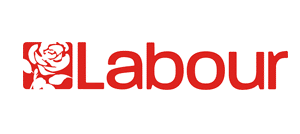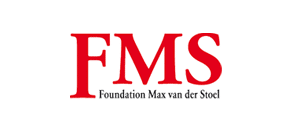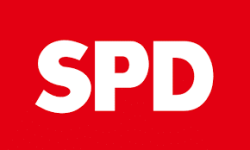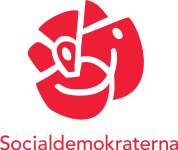Kosovo
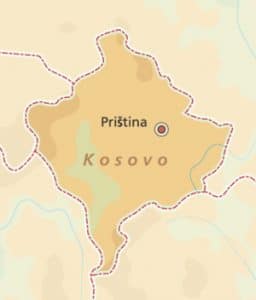
On 17 February 2008, the Republic of Kosovo unilaterally called out its independence. The formerly autonomous province of Serbia consists of around 92% ethnic Albanians and has several minorities, mainly Serbs. Kosovo’s independence has been recognised by roughly half of all United Nations member states. Serbia strongly opposes recognition of Kosovo as a sovereign state and has encouraged other countries to do the same. Five EU member states do not recognise Kosovo’s independence, thus hampering an EU position on the status of Kosovo. Over the past years, Kosovo has been struggling with its official status, deteriorating Kosovo-Serbia relations and a complicated path towards EU accession of Kosovo. Tensions in Kosovo are still present, especially in the north, were the ethnic Serb majority does not recognise the authority and presence of the government in Pristina. Consequently, incidents in these region happen frequently. On 19 April 2013, the EU brokered “First agreement of principles governing the normalisation of relations” was signed by Pristina and Belgrade and on 25 August 2015, another important agreement was reached between the two sides that is a “landmark achievement in the normalisation process.”
Relations between Kosovo and Serbia deteriorated further after Kosovo was denied access to Interpol in November 2018. After the rejection, Kosovo’s Prime Minister at the time, Ramush Haradinaj, announced that taxes on import goods from Serbia and Bosnia and Herzegovina would rise from 10% to 100 %. In August of 2019, it was speculated that both countries would agree on a border correction which would open the way to the recognition of Kosovo. The speculation sparked anger among opposition parties and polls showed that in both countries a majority was against a border-correction deal. In the fall of 2020 Kosovo and Serbia seemed to be making progress under the supervision of the US. However, only some minor economic deals were agreed upon in the end. With the 2021 election win of Vetëvendosje and Albin Kuti, the Kosovar government is expected to take a tougher stance in its negotiations with Serbia. This stance was demonstrated when Kosovo indicated in 2022 that it would no longer recognise registration plates and identity cards issued by Serbia. This further fanned the ethnic dispute between the two countries and, following EU mediation, Kosovo partially reversed its plans.
On 23 April 2023, elections took place in northern Kosovo in four municipalities. It recorded the lowest turnout ever in the country’s history at just 3.47%. Pro-Serbian political parties had boycotted these local elections. Despite this alarmingly low turnout, the government in Pristina decided to move along with the results. As the newly sworn in mayors attempted to enter their offices – ethnically Serb protestors clashed with police escorting the mayors. Five policemen were injured as a result. Attempts by the US and several EU countries to de-escalate would prove to be futile, as a large-scale clash with police and the NATO-led peacekeeping force KFOR occurred on 29 May. In July 2023, Kosovo’s government announced that it will reduce by one-quarter the number of special police deployed around administrative buildings in the ethnic Serb-majority north and organise fresh mayoral elections in four northern municipalities as part of measures to de-escalate simmering tensions with neighbouring Serbia.
-
Want to get notified by mail when this country gets updated?
Subscribe to our newsflash below!
Key Info
1 Political Situation
Kosovo is a multi-party parliamentary representative democratic republic, whereby the Prime Minister of Kosovo is the head of government, and the President of Kosovo is the head of state. Until 2012 the EU deployed, in cooperation with the International Steering Group for Kosovo a European Union Special Representative who was the final authority in regards to the interpretation of the Ahtisaari plan. This was a special International Civilian Representative in Kosovo who was supported by the International Civilian Office and had the “ability to annul decisions or laws adopted by Kosovo authorities and sanction and remove public officials whose actions he/she determines to be inconsistent” with the Ahtisaari Plan. Since 2012 Kosovo has been responsible for overseeing its own governance.
The Kosovo Assembly, which was constituted as part of the UNMIK regulations on the Provisional Institutions of Self-Government, consists of 120 seats of which a maximum of 100 are distributed proportionally among the political parties based on the number of votes. Twenty additional seats are reserved for non-Albanian communities, of whom the Serbs can claim 10. Kosovo is a single electoral district. The Assembly elects the country’s President for a five-year term. The 2011 election of Behgjet Pacolli as President of Kosovo was ruled invalid and he was replaced by outsider Atifete Jahjaga. The Assembly decided to reform the electoral code to allow for the President to be elected by popular vote. This renewal was in place for the presidential elections of 2016, which was won by Hashim Thaçi, of the Democratic Party of Kosovo (PDK), but resigned already on 5 November 2020 after the Kosovo Specialist Chambers and Specialist Prosecutor’s Office in the Hague confirmed a war crime indictment against him. He was succeeded in 2021 by Vjosa Osmani (Guxo), who as Speaker of the Assembly had already replaced Thaçi in an acting capacity.
In 2015, Kosovo and Serbia signed an agreement on the normalisation of relations between both countries to enhance the EU accession processes of both countries included deals on energy, telecommunications, the bridge that divides the town of Mitrovica into a Serbian and
Albanian part and the Association of Serbian Municipalities (ASM). The ASM will be “a legal entity defined by a statute and will to promote the interests of the Kosovo Serb community in its relations with the Kosovo central authorities.” According to the plan, 10 municipalities with a Serbian majority will have their own assembly with an elected president, and with their own flag, but will be subject to Kosovo law.
1.1: Kosovo-Serbia relations
As a consequence of the ongoing tensions, the dialogue between Belgrade and Pristina was put on hold by the Serbian government, but since Serbia became an EU candidate state in 2013, more EU pressure was put on Serbia to achieve progress. The dialogue between the two countries intensified in 2018. To normalise the relationship, the presidents of Serbia and Kosovo, Aleksandar Vucic (Serbian Progressive Party, SNS) and former President Hashim Thaçi (Democratic Party of Kosovo, PDK), proposed a territorial exchange, with the North of Kosovo being added to Serbia and the Preševo Valley of Serbia with an ethnic Albanian majority to Kosovo. The proposal was designed to enhance EU integration of both Serbia and Kosovo and to promote complete normalisation of Kosovo-Serbia relations. The plan was eventually cancelled due to fierce resistance from the opposition in Kosovo against the proposal. In 2020, Prime Minister of Kosovo Albin Kurti rejected the idea of a so-called land swap with Serbia.
Tensions between Kosovo and Serbia raised again after the denial of Interpol accession of Kosovo, for which Pristina blames Belgrade. Serbia has welcomed the denial of Kosovo, which was the third rejection after previous membership applications in 2015 and 2016.A day after the rejection, Kosovo Prime Minister at the time, Ramush Haradinaj, announced that taxes on import goods from Serbia and Bosnia-Herzegovina would rise from 10% to 100%. The earlier announced 10%was a reaction to what Kosovo considers unfriendly behavior and a hostile attitude towards Kosovo. The EU urged Kosovo to revoke the decision of the import tariff because of it being a violation of the Central European Free Trade Agreement (CEFTA). After the tariffs, lawmakers in Kosovo passed legislation to build a full-fledged army; a move that has inflamed tensions with Serbia again. The legislation will double the size of the Kosovo Security Force and gradually transform it into a professional army of 5,000 troops. At a UN Security Council session the Serbian President, Aleksandar Vucic, claimed it would jeopardise peace.
In the fall of 2020 Kosovo and Serbia seemed to be taking several steps in the right direction, as Kosovar- and Serbian delegates were summoned to the White House by President Donald Trump. Under the supervision of the United States, representatives of the two countries were negotiating on the normalisation of relations between the countries. In the end only some minor economic agreements were signed and little was left of the perceived momentum.
The end of 2020 proved a turning point for the country’s politics, after several unstable political years. Early elections were already called in 2017 and 2019, with several governing coalitions preceding each other. The governing coalition of the Self-determination movement (Vetëvendosje) and Democratic League of Kosovo (LDK) fell amid the start of the COVID-19 pandemic. The government under Vetëvendosje Prime Minister Albin Kurti was ousted after a no-confidence vote following disagreements on the government’s handling of the COVID-19 health crisis in Kosovo.
The LDK formed a new coalition with several minor parties, which was installed in June of 2020. This government was also short lived. Because one of the 61 MPs, out of a total of 120 MPs, who voted in favour of the government’s instalment had previously served prison time, the court rendered his vote illegal. Without his vote, the installment of the government did not pass with a majoirty of the votes. As a consequence, early elections were called by the country’s acting President Vjosa Osmani. She was installed after the International Court in The Hague charged Kosovo’s previous president Thaçi for “crimes against humanity and war crimes” during the 2008 Kosovan war for independence.
With the big election win of Vetëvendosje in the 2021 parliamentary elections, normalisation of relations between Kosovo and Serbia might be further away than ever. Vetëvendosje leader Albin Kurti is expected to take a hard stance in the negotiation process with Serbia. He even stated that he is a proponent of Kosovo joining Albania, which is the opposite of what Serbia wants.
In Novemeber 2022, tensions in Kosovo intensified by collective resignations of Serbs in public positions. In December 2022, Kosovo authorities postponed local elections that were due to take place on 18 December 2022 in four municipalities with a predominantly Serb community until 23 April 2023. It is was a frantic attempt by Kosovo to defuse tensions with ethnic Serbs in the north of the country.
On 23 April, elections took place in northern Kosovo in four municipalities. It recorded the lowest turnout ever in the country’s history at just 3.47%. Pro-Serbian political parties had boycotted these local elections, resulting in the incredibly low turnout. The voting districts are largely inhabited by Kosovar Serbs. Serbian List, the largest party of Serbs in Kosovo announced the boycott of the elections, and Serbian institutions made numerous calls for Kosovar Serbs to do the same. They stated: “We call on Serbs in the north of Kosovo to remain calm on April 23, and not be deceived by the provocations of the Albin Kurti regime, whose sole purpose is to drive the Serbs out of northern Kosovo by holding these elections”.
Despite this alarmingly low turnout, the government in Pristina decided to move along with the results. Vetëvendosje won in North Mitrovica and Leposavic, while the opposition Democratic Party of Kosovo achieved victory in Zvečan and Zubin Potok. Protests from pro-Serbian political leaders began with the swearing-in of Erden Atiq – the designated mayor of North Mitrovica – with the pro-Serbian leaders branding it an “invasion of the north.” The remaining three mayors were sworn in on 25 May.
One day later – as the newly sworn in mayors attempted to enter their offices – it became clear that the ethnically Serb population would not simply leave it at that: protestors clashed with police escorting the mayors. Five policemen were injured as a result. Attempts by the US and several EU countries to de-escalate would prove to be futile, as a large-scale clash with police and the NATO-led peacekeeping force KFOR occurred on 29 May. No less than 25 KFOR-soldiers and 50 protestors were wounded during these riots. Journalists were reportedly attacked as well by the protestors. Some masked protestors were even seen spray-painting the letter “Z” – a symbol of support for the Russian invasion of Ukraine – on buildings and vehicles.
In July 2023, Kosovo’s government announced that it will reduce by one-quarter the number of special police deployed
around administrative buildings in the ethnic Serb-majority north and organise fresh mayoral elections in four northern
municipalities as part of measures to de-escalate simmering tensions with neighbouring Serbia.
1.2: EU-Kosovo relations
Kosovo has had an association agreement with the EU since 2016 and applied for EU membership in December 2022, last in the region. Since then, it has been a “potential candidate”. According to the European Commission’s 2023 report, Kosovo should make more efforts to ‘normalise’ its relationship with Serbia: “Normalisation of relations is an essential prerequisite on the European path of both sides and both sides risk losing important opportunities if no progress is made.” Disagreements around local elections, number plates and military build-up at the border as a result of an attack, have recently put the relationship under great strain. Independence and efficiency of the judicial system are not yet guaranteed. Implementation of anti-corruption laws and legislation against organised crime has proven limited. Freedom of expression is still a concern, especially in northern Kosovo, where physical threats and hatred are a reality. The economy has proven resilient during the inflation crisis, but is still partly tainted by the informal sector and corruption. Kosovo has made progress in creating a functioning market economy.
Kosovo’s EU membership still has a very big bump in the road, namely that all current member states must agree to join. Currently, five EU member states do not recognise Kosovo as an independent state.
1.3: Social Democracy in Kosovo
In Kosovo, social democracy has always been overshadowed by the nationalist struggle for autonomy and later for independence.
In recent years, a few social-democratic political parties have emerged, such as the Kosovo Social Democratic Party, Reformist Party ORA, and New Spirit (FER). However, due to the political situation, these parties do not have much popular support and have merged with stronger political parties which focus more on territorial integrity and the independence of Kosovo. Politics in Kosovo is often more about personalities than policy, with ideology for the most part reserved to the national question, while social policy is mostly developed without serious political debate.
Nowadays Vetëvendosje is considered as the best alternative on the left and the only party that is trying to develop and implement social democratic policies. At the same time, international partners are not eager to engage in cooperation with Vetëvendosje because of their behaviour in and outside the parliament and nationalistic views. The party is still open to the option of Kosovo joining Albania. The Social Democratic Party (PSD) only existed on paper in the past ten years, but in 2018 9 MPs and the Major of
Pristina reestablished the PSD after they split from the Vetëvendosje party. In recent elections, the PSD ran together with the Alliance for Future of Kosovo party. They managed to get 11,57 per cent of the votes resulting in 14 seats in the parliament. After the 2021 parliamentary elections the party is no longer represented in Kosovo’s assembly. Vetëvendosje was the election’s big winner and is hoping to improve the country’s economy by implementing social policies.
1.4: Serbs in Kosovo
About 8 per cent of the population of Kosovo is Serbian. The Serb population of Kosovo is concentrated in its northern and southern areas. Serbs in the south generally live in enclaves that are separated from the Albanian territories by roadblocks and/or bridges. Especially the divided town of Mitrovica experiences tensions, causing a temporary closure of the bridge between the Southern Albanian dominated area and the Northern Serb dominated area. About 18 per cent of the Kosovo Serbs live north of the river Ibar in North Mitrovica. The place has a strong symbolic meaning to Serbs, as it is the only Serbian urban centre in Kosovo with a university and hospital. In March 2004 inter-ethnic violence, leaving 20 dead, further harmed the relation between Serbs and Kosovars. The outburst of violence became a point of reference for the vulnerability of the relations between the ethnic groups. At least 800 mainly Serbian homes and at least 17 Serbian religious buildings were destroyed or damaged. The call for independence in 2008 also led to riots in the north of Kosovo. Kosovo Serbs consider the declaration of independence by Pristina illegal, and a breach of international law.
During the past years, the Serbs in Serbia as well as in Kosovo have harshly criticised the failure of UNMIK and KFOR to protect the Serb population in Kosovo. Especially the removal of control posts has been a reason for fear. Personal security and freedom are the dominant concerns for the Serbian community in Kosovo. Improving the situation of the Serbian communities was one of the main points on the agenda during the status negotiations, and remains an important topic that is held under scrutiny by the international community. The Serb community is mostly concentrated in the north of Kosovo, but there are also several enclaves in the centre and south of Kosovo with a Serb majority. Because the Serbs in these enclaves are more isolated from Serbia and therefore have more connections with the ethnic Albanians they show more willingness to integrate, despite many problems and a reluctance to accept Kosovo authorities remaining.
The Serb political community is represented by the Serb list which is backed by Belgrade. Serb opposition parties have tried to gain support from local Serbs, but intimidation and even the killing of opposition figure Oliver Ivanovic have caused the Serb list to remain dominant, getting all 10 seats reserved for the Serb minority in the last elections. Oliver Ivanovic decided to run in the 2017 Kosovan local elections, with his civic initiative “SDP”. During his campaign, he publicly criticised the Serbian government for supporting the Serb list. Four days before the assassination, Ivanovic confessed he feared for his safety. In the recent parliamentary elections, his PSD party announced it would cooperate with the Serb List, sparking anger amongst prominent PSD members, causing many to leave the PSD.
1.5: EULEX
With Kosovo’s call for independence in 2008 UNMIK ended and a new European Union Rule of Law Mission (EULEX) took over. EULEX aims to assist and support Kosovo authorities in the area of rule of law, specifically concerning the police, judiciary and customs. EULEX is a technical mission which monitors, mentors and advises whilst retaining a number of limited executive powers. The EULEX mission has been hindered in its functioning by the fact that only 22 out of 27 EU member states have recognised Kosovo as independent, leading to internal division. The mission is therefore often criticised for being inefficient in establishing a fully functioning rule of law.
In 2014 corruption allegations were made after EULEX prosecutor Maria Bamieh was quoted in a Kosovar newspaper, saying that the EULEX’s internal investigation failed to have key suspects questioned and that they were still allowed to work on sensitive cases. Among others, she accused former judge, Francesco Florit, of taking a 300,000 Euro bribe. In 2015 a report reviewing EULEX Kosovo mandate implementation with a focus on the handling of the corruption allegations was published, which found no evidence of corruption. The EU has started to stay committed to its leading role in Kosovo and considers the establishment of the rule of law the top priority. After demands were made for the EU to either withdraw or reform the EULEX mandate, EULEX refocused its efforts in June 2018, bringing its judicial executive part to an end while remaining active in other tasks.
1.6: Independence and recognition
In an extraordinary parliamentary session in Pristina on 17 February 2008, Kosovo unilaterally declared its independence from Serbia. Hashim Thaçi, Prime Minister of Kosovo at that point, read the declaration of independence, which stated that Kosovo is dedicated to peace and stability in the region, and is looking for a good relationship with its neighbours. The declaration furthermore states that Kosovo is created along the lines of a UN plan drawn up by special representative Martti Ahtisaari, calling Kosovo’s independence to be supervised by the international community. Serbia is strongly opposed against recognition of Kosovo as a sovereign state. According to the Serbian government, a solution for Kosovo must be found in a mutual agreement between both countries.
As of 4 September 2020, 110 UN states have recognised Kosovo’s independence.. Meanwhile, 22 out of 27 EU member states recognise the independence; Spain, Cyprus, Greece, Slovakia and Romania have not done so, mainly due to issues with minorities and separatist movements in their own respective countries. Among the NATO member states, 26 out of 30 countries have recognised Kosovo’s independence. Kosovo is a member of the IMF and the World Bank and accession of Kosovo is on the the current agenda of future enlargement of the EU. Simultaneously, Kosovo has requested to join the NATO. In 2020, Kosovo and Serbia signed separate documents in which Serbia pledged to suspend it efforts to encourage non-recognition of Kosovo to other states, while Kosovo agreed to not seek accession to new international organisations during the same period.
1.7: UNMIK
The executive rule of Kosovo has, until its call for independence in 2008, been under the guidance of the United Nations, though officially being part of Serbia. Kosovo was administered by the United Nations Interim Administration Mission in Kosovo (UNMIK) and the Special Representative of the Secretary-General (SRSG). The United Nations Security Council Resolution 1244 placed Kosovo under transitional UN administration pending a determination of Kosovo’s future status. This Resolution entrusted UNMIK with sweeping powers to govern Kosovo, but also directed UNMIK to establish interim institutions of self-governance. Since 2001 UNMIK gradually transferred governing power to local institutions.
UNMIK initially brought together four pillars under UN leadership: Humanitarian Affairs under the responsibility of the UNHCR, Civil
Administration of the UN, Democratization and Institution-building of the OSCE, and Economic Reconstruction, Recovery and Development of the European Union (EU). With the emergency stage over, pillar I (Humanitarian Affairs), was phased out at the end of June 2000. In May 2001 a new pillar I was created to be responsible for Police and Justice under the UN. To establish and maintain security in Kosovo, NATO-led international forces with a UN mandate were deployed (KFOR).
1.8: Kosovo war
Tensions between the Serbian and Albanian communities in Kosovo simmered throughout the 20th century and occasionally erupted into major violence, particularly during the First Balkan War, World War I, and World War II. The Socialist government of Josip Tito systematically repressed nationalist manifestations throughout Yugoslavia, seeking to ensure that no republic or nationality gained dominance over the others. After the death of Tito nationalist feelings became dominant again, especially among ethnic Albanians living in Kosovo, leading to an increasingly poisonous atmosphere between Albanians and Serbs.
Tensions further increased when the autonomy that was given to Kosovo in the ’80s was revoked under the rule of Slobodan Milošević. In 1991 an unofficial referendum was held in Kosovo on the creation of an independent republic, 98 per cent voted in favour with a 90 per cent turnout. The denial of Kosovo’s independence by the Serb government led to an increase in violence between the Kosovo Liberation Army (KLA) and the Serb authorities and finally to a situation of war in 1997. The international community demanded that the Serbs would end their offensives against the KLA whilst attempting to convince the KLA to drop their bid for independence. Moreover, attempts were made to persuade Milošević to permit NATO peacekeeping troops to enter Kosovo.
The failure of peace negotiations led to a NATO decision in 1999 to end the conflict with military means. Within ten weeks, NATO aircraft flew over 38,000 combat missions with the following aim: “Serbs out, peacekeepers in, refugees back”. On June 3, 1999, Milošević accepted the terms of an international peace plan to end the fighting, with the Serbian parliament adopting the proposal amid contentious debate with delegates coming close to fistfights at some points. According to the Kosovo Memory Book, based on the study of an NGO from both Kosovo and Serbia, around 13,000 people were killed during the conflict.
2 Elections
The Assembly of Kosovo was established in 2001, by the United Nations Interim Administration Mission in Kosovo. Kosovo’s independence was declared on 17 February 2008, after which a constitution came into effect on 15 June 2008.
The Assembly is regulated by the Constitution of Kosovo and has 120 seats. 20 of these are pre-allocated to parties which are representing national minorities, as follows:
- 10 seats for the Serbs;
- 4 seats for the Romani, Ashkali and Egyptians;
- 3 seats for the Bosniaks;
- 2 seats for the Turks;
- 1 seat for the Gorans.
2.1: Minorities in Kosovo
Between 7 and 12 per cent of the population in Kosovo belongs to an ethnic minority. The flag of Kosovo includes six stars; each representing a minority group. Initially, the aim was to depict Kosovo as a multi-ethnic state, with a strong legal position for minorities.
As part of the efforts to secure minority rights, the Constitution guaranteed political involvement for parties representing minorities. Article 96 of Kosovo’s Constitution also regulates the share of power for minority groups in Pristina’s executive bodies. However, despite these efforts, the Roma, Ashkali and Egyptian communities in Kosovo are discriminated against, being the poorest and most vulnerable in Kosovar society.
Not only are the laws themselves discriminatory, but implementation is also lacking. Here, it does not help that minorities tend to be grouped together by law. For example, Ashkali and Egyptians might be close as communities, but their heritages are unique.
2.2: Parliamentary elections
New Kosovar parliamentary elections were set to take place again in 2023. However, Kosovo’s highest court in December rendered the parliamentary vote electing the recently installed government in June illegal. It had become clear that one of the members of parliament, Etem Arifi who voted in favor of the instalment of the government, had been convicted in 2019. This rendered the entire formation of the government illegal, as only 61 out of 120 members had voted in favor of installing the new government. Without the vote of Etem Arifi the new government would not have received a majority of the votes. As such, snap elections were called. The current government was allowed continue serving until the upcoming parliamentary elections on 14 February 2021. Vetëvendosje was already the largest party in parliament, but blocked from government by its rivals the Democratic League of Kosovo (LDK) and its political allies. With an anti-corruption and anti-establishment campaign Vetëvendosje was expected to win the elections by a landslide.
February 2021 parliamentary elections
| Party | Votes | % of votes | Seats | Seats in 2019 |
| Self-Determination (Vetevendosje) | 378,550 | 47.85 | 58 | 29 |
| Democratic Party of Kosovo (PDK) | 137,722 | 17.41 | 19 | 24 |
| Democratic League of Kosovo (LDK) | 103.507 | 13.08 | 15 | 28 |
| Alliance for the Future of Kosovo (AAK) | 58.743 | 7.43 | 8 | 13 |
| Serb List (SL) | 43,836 | 5.54 | 10 | 10 |
| Social Democratic Initiative (NISMA) | 20,535 | 2.6 | 0 | 6 |
| Turkish Democratic Party of Kosovo (KDTP) | 6,153 | 0.79 | 2 | 2 |
| Other parties | 26,218 | 3.30 | 8 | 8 |
As predicted in the polls, the elections were a major victory for the opposition party Vetëvendosje. It received just shy of 50% of the votes. The left-wing nationalist party, under Albin Kurti, has almost doubled its vote share since 2019. The biggest governing party LDK has amost lost half of its votes, while the other established opposition party, the Democratic Party of Kosovo (PDK), lost about 3% of its vote share compared to 2019. Other major parties represented in government, as the Alliance for the Future of Kosovo (AAK) and minority party Serb List (SL), also lost minor vote shares. Kosovan citizens have sent a clear message to its politics. All governing parties and established opposition parties have lost votes, at the expense of Vetëvendosje. The party hopes to fix the economic situation the country is in and tackle its ongoing corruption problems. It will not be difficult for the party to form a government, but once in power it faces high expectations and major obstacles to overcome.
Political crisis
In 2019 early elections were triggered after Prime Minister Ramush Haradinaj, of the AAK, was summoned to the International Court in The Hague about allegedly commited war crimes. It took four months after the 2019 snap elections were held, following the prime minister’s resignation, for the two biggest parties to reach an agreement on the formation of a new government. The deal signed on the 2nd of February stated that the leader of the Vetëvendosje party, Albin Kurti, would become president and work together with the centre-right (LDK) and other smaller groups. What made it difficult to reach consensus lay in the fact that the LDK is a centre-right political party, while Vetëvendosje is identified as leftist, despite the party having clearly visible nationalist tendencies. Kurti’s government did not last after Kurti and Thaçi clashed over the response to the COVID-19 pandemic and the dismissal of the Minister of Internal Affairs and Public Administration Agim Veliu. The government fell after a vote of no confidence against Prime Minister Albin Kurti on 25 March 2020, which was backed by a majority of parliament.
After the fall of the Vetëvendosje-LDK government, the LDK seized the opportunity to form a new governing coalition with several minor parties. These included the Alliance for the Future of Kosovo (AAK), Social Democratic Inititative (NISMA) and minority parties Serb List (SL) and the Turkish Democratic Party of Kosovo (KDTP). In June 2020 the government was installed when 61 out of 120 MP’s supported the newly formed coalition. Vetëvendosje remained the largest party in parliament and its leader Kurti became the leader of the opposition, taking over from former PDK leader Kadri Veseli, who stepped down as party leader after his coniction of crimes against humanity and war crimes in November 2020.. During the elections, the race for the new Prime Minister of Kosovo was also ongoing. Kurti of Vetëvendosje, Hoti of the LDK and Hoxhaj of the PDK were in the running to become the next Prime Minister of Kosovo. The election was eventually won by Kurti. Due to his time spent in prison, he is not allowed to become a member of parliament, but was able to beappointed by his party as Prime Minister of Kosovo.
2.3: Presidential elections
Since 2016, the parliament of Kosovo holds indirect presidential elections. The current president of Kosovo, Vjosa Osmani was chosen on during by the parliament during the elections on 3 and 4 April 2021. Osmani won with 71 MPs votes out of a possible 120, with 3 parties boycotting the vote. Nasuf Bejta, also a member of the political party Guxo which was founded by Osmani herself, was the only other candidate who received a vote in any of the three rounds. Osmani is the successor of Hashim Thaçi, who was elected as Kosovo’s president in 2016 and was the president of Kosovo until the 5 November 2020, when it was confirmed that he would receive an indictment for war crimes. Thaçi stepped down as president to protect the integrity of the presidency of Kosovo. Before her election in 2021, Vjosa Osmani had already been serving as acting president of Kosovo since Thaçi’s resignation.
3 Political Parties
Social Democratic Parties
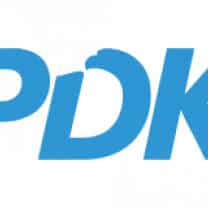
Number of seats: 19
The PDK was formed by prominent members of the Kosovo Liberation Army (UCK), among them the former party leader, former prime minister and former president of Kosovo, Hashim Thaçi, and the former president of the assembly and former spokesperson of UCK, Jakup Krasniqi. When Thaçi resigned from the position of head of party to assume the office of the president, Kadri Veseli was unanimously voted to succeed him in the position of head of party. Veseli remained party leader untill he was convicted of crimes against humanity and war crimes in November of 2020. During the parliamentary elections of 2021 the party was led by Enver Hoxhaj, after which he was succeeded by Memli Krasniqi.
Upon its foundation, the party stated it wants to adopt a social democratic ideology and contacts with social democratic foundations exist. But although PDK originally had socialist tendencies, its political tendencies have shifted to centre-right over the years. Like many parties in former communist countries PDK wrestles with the bad image of left wing parties. Also it is obvious the party has to come to grips with their image of being a party of former guerrillas. Nowadays, the party is tolerant and accommodating towards local Serbs, offering them Serbian as an official language, special municipalities, special positions in institutions, right of veto for laws that deal with minority rights etc. Besides full independence for Kosovo, top priorities in the view of the party leadership are the fight against youth unemployment and corruption.
PDK draws its support especially from poor rural, Albanian dominated areas that suffered extremely from violence during the war. For example in the Drenica Valley, in which also a lot of UCK fighters were living, PDK gained 80% of the votes in the first three elections. In the 2021 parliamentary elections the party received little over 17% percent of the total votes. This is down 4% of the 21% the party received during the 2019 parliamentary elections.
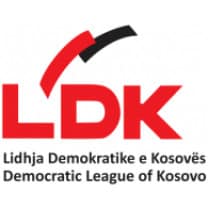
Number of seats: 16
The LDK was formed in 1989 by a group of intellectuals headed by Ibrahim Rugova and grew out to one of the main political parties of Kosovo. The immediate goal was to establish an independent Kosovo. In 1991 the party organised a referendum on self-determination of Kosovo in which more than 90% of the Kosovar Albanians voted for independence. The independence declaration was only accepted by Albania. Afterwards Rugova formed an underground government in Kosovo, which was not recognised by Serbia. A number of LDK members have been killed over the past years, which are suspected to be politically motivated assassinations.
Since then, the party has been one of the most dominant forces in Kosovan politics, winning the 1992, 2001 and 2004 elections with large margins. After those three election wins, the party formed a governing coalition. Since the 2007 elections the party has always been one of the three biggest parties in Kosovan politics, taking part in three out of six governing coalitions. As such, it has been an important established political force in Kosovo. During the 2021 parliamentary elections, the party suffered a large defeat. Its vote share dropped from 25% in the 2019 elections to 13% in the 2021 elections. The party is currently led by Lumir Abdixhiku.
LDK is described as a centre-right party with a liberal orientation favouring a free market economy and privatisation or public-private partnerships. Other priorities are European integration, education (in one’s native language), authentic development of culture, fair social policy, accessible healthcare, and guaranteeing minority rights.
Other Parties
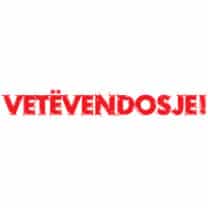
Number of seats: 57
After these elections it has become the sole dominant force in Kosovo’s domestic politics. Its current leader is Albin Kurti. The movement was well known even before its formal establishment in 2005, especially for their graffiti slogans all around Kosovo, such as UNMIK Jashtë (UNMIK Out), and Jo Negociata, Vetëvendosje! (No Negotiation, Self-determination). The party can best be described as a left-wing nationalist movement, which hopes to fight corruption and fix the country's economy with leftist policies.
The party has also organised street protests in the past, which have often turned violent. Combined with its opposition towards UNMIK and international supervision in general, the party enjoys wide appeal amongst the youth, mainly due to its antiestablishment and anti-corruption message. Moreover, Vetëvendosje has become a symbol of opposition to the status quo, through its disruptive actions in the previous parliament. Its supporters released tear gas inside parliament and threw firebombs outside it to protest the deals with Montenegro and Serbia, issues that caused the previous government to spark the snap elections of June 2017.
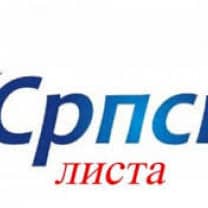
Number of seats: 10
Serb List supports the process of normalizing the relations between Serbia and Kosovo, and the party is committed to implementing all the agreements that have been and will be ratified by Brussels. The party strives for legal certainty, and wants to carry out its political activities based on the rule of law. Equality and stability are key, and in order to defend these principles the party will constantly seek justice for Serb victims and punish those who committed crimes against them.
Since the 2014 elections the party has held almost all of the minority seats designated for the Serbian minority. It can count on the votes of many Serbians living in the north of Kosovo, near the Kosovan-Serbian border. After the 2014 and 2017 elections the party was assigned 9 out of 10 Serbian seats. After 2019 it received 10 out of 10 seats and after the 2021 it gained 2 additional seats in theassembly.
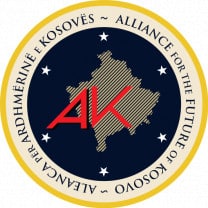
Number of seats: 8
Like the PDK, former Albanian militants who fought against the Belgrade regime lead the AAK. The leader of the party, Ramush Haradinaj, is a former UCK commander. Originally the AAK was founded for the 2000 municipal elections as a coalition of five nationalist parties. By 2001 two of the parties had withdrawn from the coalition. The parties that withdrew were the more conservative and nationalist members. For the 2002 municipal elections, the remaining parties registered as an independent party under the same name.
AAK has been in government from 2001 until 2007 and has delivered a prime minister for the second governing period from 2004 on. Party leader Haradinaj took up this job, but handed it over to Bajram Kosumi as he was indicted for war crimes. In 2006 Kosumi resigned and LDK man and former guerrilla commander Agim Ceku was nominated to form a new government. After the 2017 parliamentary elections, the AAK was also party of a government under the PAN-coalition. In the 2021 parliamentary elections, the party received about 7% of the votes, becoming the country's fifth biggest party. The party's vote share has dropped about 4% since the 2019 parliamentary elections.
The AAK is now known as a more moderate, pro-European party on the right of the political spectrum, which is in favour of ethnic co-operation. Economic priorities set by the party are the creation of new jobs, promotion of small and medium sized business, infrastructure, and privatisation. Support comes mainly from the Dukagini region in southwest Kosovo. International and local political observers credit the party with solid organisation and clear, effective and largely democratic internal procedures. In addition, women and youth are well represented in the party, which fits the party’s priority to promote youth and a bigger role for women in society.
4 Biographies
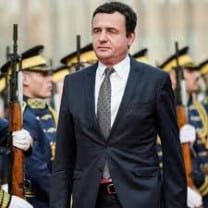
Albin Kurti was born on March 24th 1975 in Pristina which was part of Yugoslavia at the time. His father is from Albanian decent. After scoring 100% in the admission exam, Kurti was admitted to the Faculty of Engineering at the University of Pristina as a top applicant in 1993. He graduated in 2003 in Telecommunications and Computer Engineering.
He came to prominence in 1997 as the vice-president of the University of Prishtina Student Union, and a main organiser of nonviolent demonstrations in 1997 and 1998. The protests, aimed against the occupation of the university campus by the Yugoslav police, were violently crushed but that did not stop Kurti from organising other protests in the following years. In July of 1998 Kurti joined the Kosovo Liberation Army as an assistant to the political representative. This made him a target of the Yugoslav police. He was arrested during the April 1999 NATO bombing of Yugoslavia and was sentences to 15 years in prison later that year. He was charged with "jeopardizing Yugoslavia's territorial integrity and conspiring to commit an enemy activity linked to terrorism." He however refused to recognise the legitimacy of the court. He was eventually released in December 2001 by Yugoslavia's postMilosevic government amid international pressure.
On February 3rd 2020, Kurti was elected Prime Minister of Kosovo amid an ongoing political crisis with 66 votes in favour, 10 abstains and 34 MPs boycotting the vote all together. A little over a month later, on the 25th of March 2020, Kurti was ousted by a vote of no confidence. He is the leader of the political movement and party the Self-determination movement (Vetëvendosje). After the 2021 parliamentary elections Vetëvendosje recieved just shy of 50% percent of the votes. In March 2021, he was re-elected.
He has been a member of the Assembly of Kosovo since 2010 in three consecutive legislatures and is married to Norwegian Rita Augestad Knudsen. They have one daughter named Lea.
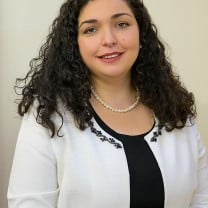
Dr. Vjosa Osmani-Sadriu was born on 17 May 1982 in Mitrovica and is a Kosovar Albanian jurist and political activist. Osmani has also acted as a teaching assistant at the University of Pristina, lecturer at RIT Kosovo (formerly known as the American University in Kosovo and has been a visiting professor at the University of Pittsburgh in Pennsylvania, USA. She also earned her master’s degree in law in 2005 and a doctorate in juridical science in 2015 at the University of Pittsburgh. Osmani is married and has two children.
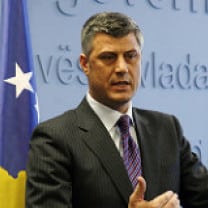
Hashim Thaçi’s rise to prominence in Kosovar politics started during the war against Serbia, when he became the political leader of the Kosovar Liberation Army (KLA). After the war, he led the PDK party, but the party came in second in the first two elections. In 2007, the PDK managed to secure the first position, and thus Thaçi became Prime Minister of Kosovo. One of the promises of Thaçi's campaign was that he would declare Kosovo independent, which occurred on 17 February 2008. The PDK won early elections in 2010, and Thaçi remained as Prime Minister.
A 2010 report by the European Council implicated Thaçi in an organ theft scheme during the Kosovo War in the 1990s. The report, widely known as the Marty report, states that over 300 organs were harvested from Serbian prisoners of war and sold on the international black market in order to raise money for the war effort. The accusations were never conclusively proven. More recently, prosecutor Clint Williamson issued a report declaring that "senior officials of the former Kosovo Liberation Army" were suspected of crimes against humanity. Thaçi may be one of them, although his name was not mentioned.
Hashim Thaçi was elected as Kosovo’s president on 26 February 2016, upon receiving 71 of the 120 MPs votes. He was installed as President on 7 April 2016. As a result of a deal reached in December 2014 between the Democratic Party of Kosovo (PDK) and the Democratic League of Kosovo (LDK), the post of president would go to the PDK. For this reason, some MPs from the LDK party did not vote for Thaçi. Eventually he was elected with a simple majority during the third voting round, after failing to achieve a two third majority in the first two rounds.
On 24 April 2020, the Kosovo Chambers and Specialist Prosecutor’s Office in the Hague filed an indictment against Thaçi (among others) for crimes against humanity and war crimes. Following this announcement, he decided to resign from his position as President of Kosovo and was succeeded by Vjosa Osmani, who served as acting president until her election in 2021.
Subscribe to our newsletter
